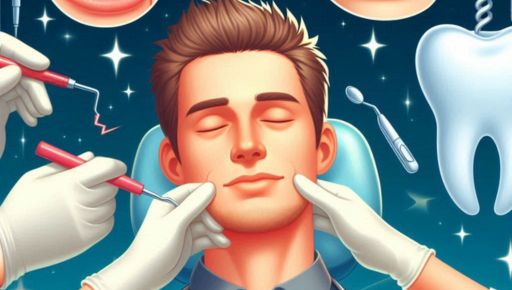Sleep apnea is a serious health issue that affects millions of people across the United States. This condition causes breathing interruptions during sleep and can lead to problems like chronic fatigue, high blood pressure, heart disease, etc. While many people consult medical specialists like pulmonologists or sleep therapists, dentists play a key role in treating sleep apnea.
Dentists have unique skills to spot the signs of sleep apnea as they have a deep knowledge of oral health and anatomy. Issues like misaligned jaws, enlarged tonsils, or even certain gum diseases can contribute to sleep apnea. When you visit the dentist for your routine check-up, they can recognize these signs and refer you to the right specialists or offer treatments.
Thanks to advancements in the field, dentists can now provide customized oral devices that keep the airway open during sleep. These appliances are non-invasive compared to CPAP machines and provide a more comfortable sleep. If you have sleep apnea, consult with a top dentist Thornton, and find your options.
A dentist’s role in sleep apnea diagnosis
While patients of sleep apnea do not primarily visit the dentist for their check-ups and treatment, dentists still play a key role in the condition’s diagnosis. When you visit your dentist for a regular check-up, they can spot signs of sleep apnea and warn you.
One of the major signs is teeth grinding, also known as bruxism. Dentists can spot the signs by looking for wear and tear on the surfaces of teeth. People with sleep apnea grind their teeth as the condition disrupts their peaceful sleep, which eventually causes the grinding. Dentists also check the jaw position and the size of the mouth.
Problems like a small jaw or a large tongue can also develop issues with sleep apnea. To check for sleep apnea symptoms, dentists may use various tools. These include the STOP-Bang questionnaire or the Epworth Sleepiness Scale. They also look at your lifestyle factors and medical history.
If your dentist suspects that you have sleep apnea, they may work with other healthcare providers, like sleep specialists and primary care doctors, to confirm. They may refer the patient for further tests, like a sleep study, for a full diagnosis.
Treatment options available
Oral Appliance Therapy (OAT)
Oral Appliance Therapy, or OAT, uses custom-made dental devices to keep the airway open while sleeping. It adjusts the position of the jaw and the tongue to prevent blockage in the airway and offers a more comfortable alternative to CPAP machines. Patients have reportedly found these devices easier to use and more convenient.
These devices are available in two types– Mandibular Advancement Devices (MADs) and Tongue-Stabilizing Devices (TSDs). MADs fit over the upper and lower teeth and gently move the lower jaw forward to keep the airway open. TSDs work by keeping the tongue forward, which helps prevent it from blocking the throat.
While these appliances are also readily available at the dentist’s office, getting them custom-made for yourself will provide the best results.
Lifestyle and behavioral changes
Alongside oral appliances, dentists often recommend lifestyle changes to reduce sleep apnea symptoms. For example, reducing some extra weight can relieve pressure on the airway and reduce sleep apnea symptoms. Habits like smoking can irritate the airways and worsen apnea symptoms. Quitting smoking can benefit your overall health.
Improving your sleep schedule can also play a huge role. For instance, make sure to get an adequate amount of sleep every day. Also, try to go to bed and wake up at the same time daily. If you consume coffee or alcohol, make sure to limit your intake, especially in the evening.
Do you have sleep apnea?
If you have sleep apnea or suspect that you do, your dentist might be able to spot the signs and refer you to a specialist. They can also provide treatment options available at a dental clinic. Visit your local clinic today!

